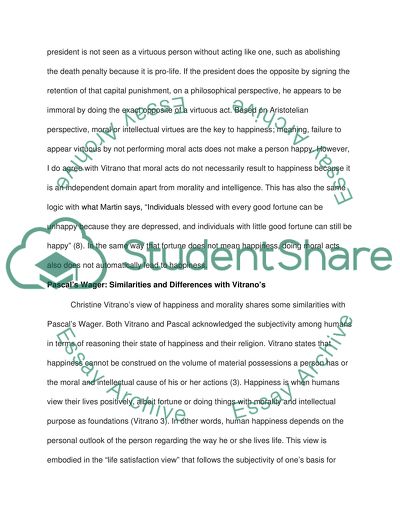Cite this document
(“HAPPINESS AND MORALITY Term Paper Example | Topics and Well Written Essays - 1500 words”, n.d.)
Retrieved from https://studentshare.org/philosophy/1463184-happiness-and-morality
Retrieved from https://studentshare.org/philosophy/1463184-happiness-and-morality
(HAPPINESS AND MORALITY Term Paper Example | Topics and Well Written Essays - 1500 Words)
https://studentshare.org/philosophy/1463184-happiness-and-morality.
https://studentshare.org/philosophy/1463184-happiness-and-morality.
“HAPPINESS AND MORALITY Term Paper Example | Topics and Well Written Essays - 1500 Words”, n.d. https://studentshare.org/philosophy/1463184-happiness-and-morality.


